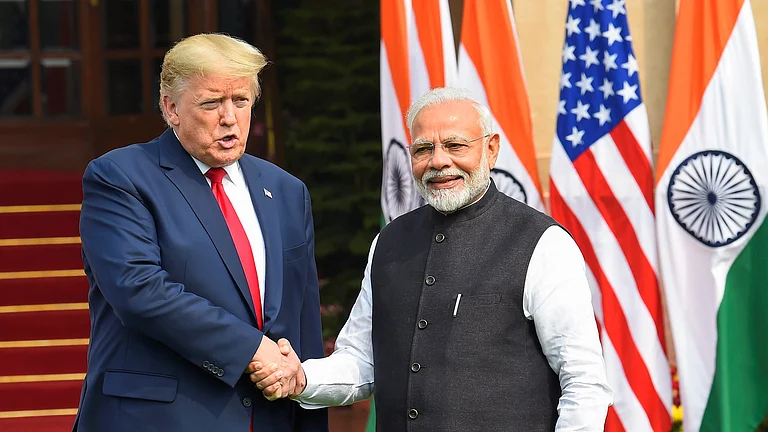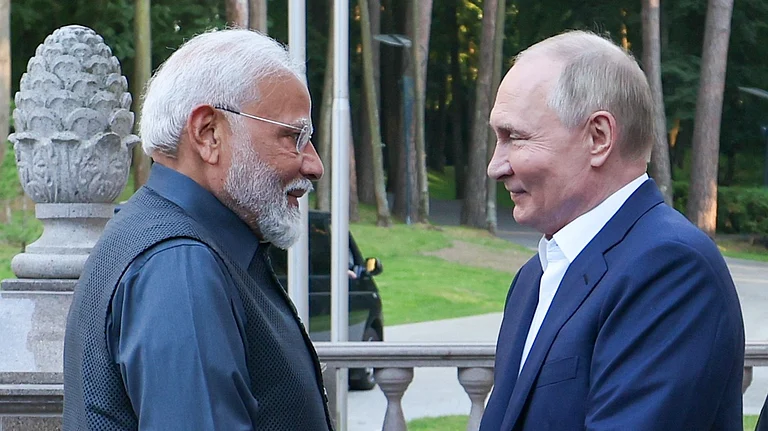
India remained the second-largest buyer of Russian fossil fuels in October, spending €2.5 billion on crude despite new US sanctions on Rosneft and Lukoil.
Western sanctions have pushed Russia to offer discounted crude, enabling India to secure cheaper supplies even as imports from sanctioned refineries decline in the EU and UK.
India, the second-largest buyer of Russian oil, spent 2.5 billion euros on crude purchases from Moscow in October, maintaining the same level as in September, according to a European think tank.
Despite tightening sanctions on Russian entities, India continued as the second-biggest buyer of Russian fossil fuels after China in October, the Centre for Research on Energy and Clean Air (CREA) said. The US imposed sanctions on Rosneft and Lukoil on 22 October, prompting companies such as Reliance Industries, HPCL-Mittal Energy Ltd and Mangalore Refinery and Petrochemicals Ltd to pause imports.
Russia exported 60 million barrels of crude in October, with Rosneft and Lukoil accounting for 45 million barrels.
"India remained the second-largest buyer of Russian fossil fuels, importing a total of EUR 3.1 billion. Crude oil dominated India's purchases at 81 per cent (EUR 2.5 billion), followed by coal at 11 per cent (EUR 351 million) and oil products at 7 per cent (EUR 222 million)," CREA said in its monthly tracking report.
India, traditionally reliant on Middle Eastern oil, sharply increased its Russian imports after the 2022 Ukraine invasion, taking advantage of steep discounts as Western sanctions reduced European demand. Russian crude went from under 1 per cent of India’s imports to nearly 40 per cent within months.
In September, India’s total spend stood at EUR 3.6 billion, including EUR 2.5 billion on crude, EUR 452 million on coal and EUR 344 million on oil products. CREA noted an 11 per cent month-on-month rise in Russian crude imports in October, driven largely by private refiners, while state-run refineries almost doubled their volumes.
"In a keen development, the Rosneft-owned Vadinar refinery (in Gujarat) – now sanctioned by the EU and the UK – increased its production to 90 per cent in October. After the EU sanctions in July, the refinery has been importing crude solely from Russia. In October, their imports from Russia recorded a 32 per cent month-on-month increase to their highest volumes since the full-scale invasion," it said.
Exports from the refinery have dropped sharply—47 per cent year-on-year—to the lowest level since May 2023. CREA added that imports from six Indian and Turkish refineries using Russian crude fell 8 per cent month-on-month among sanctioning nations, driven mainly by declines in the EU and UK. In contrast, Australia’s imports rose 140 per cent to EUR 93 million, while US imports increased 17 per cent to EUR 126.6 million as both countries have yet to restrict oil products derived from Russian crude.
Following Russia’s 2022 invasion of Ukraine, Western sanctions disrupted its access to European markets, prompting Moscow to offer steeply discounted crude to attract new buyers. India, sensitive to global oil price swings, capitalised on the lower prices, with discounts at times reaching USD 18–20 per barrel. In October, the discount on Russia’s Urals crude narrowed by 4 per cent month-on-month, averaging USD 4.92 per barrel below Brent.


























